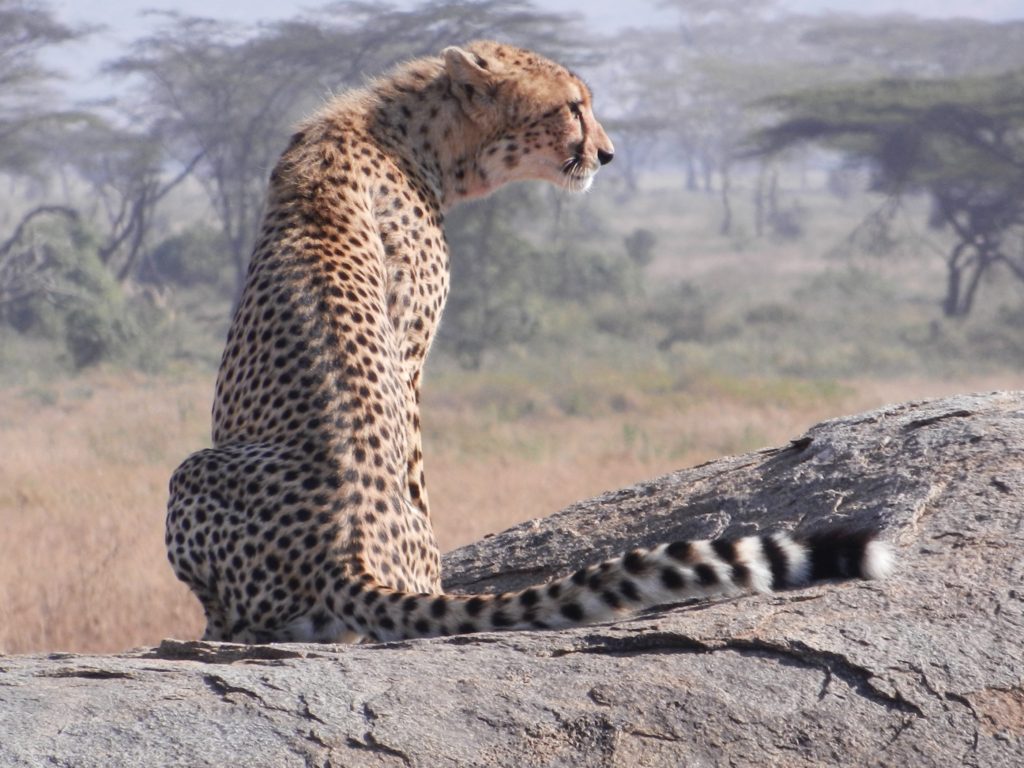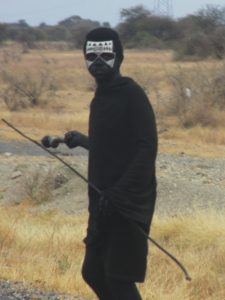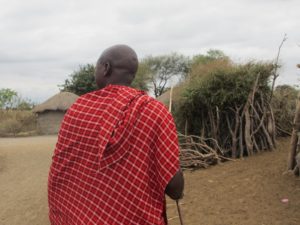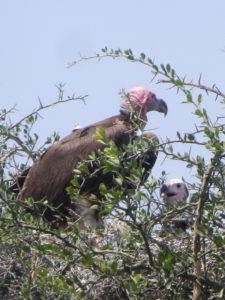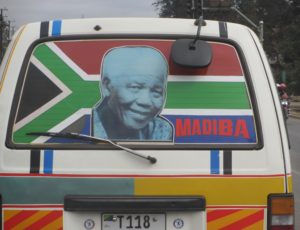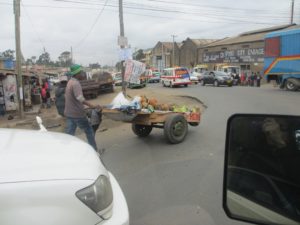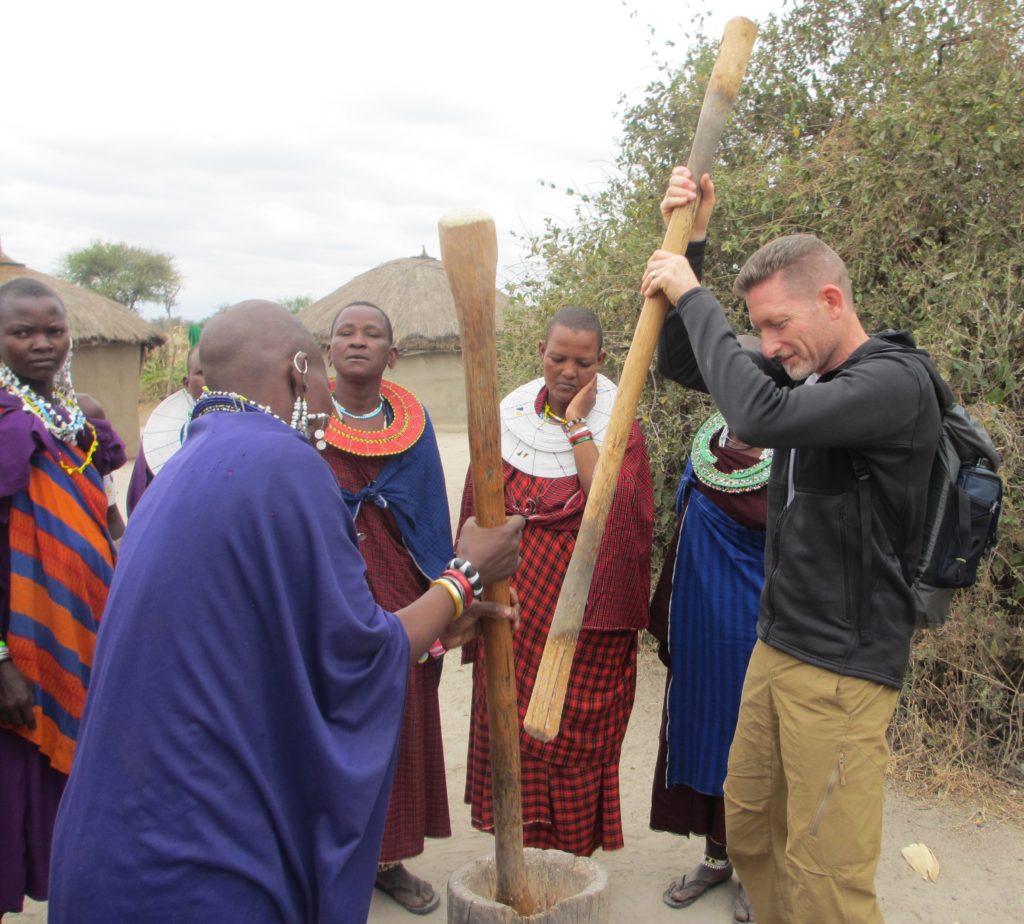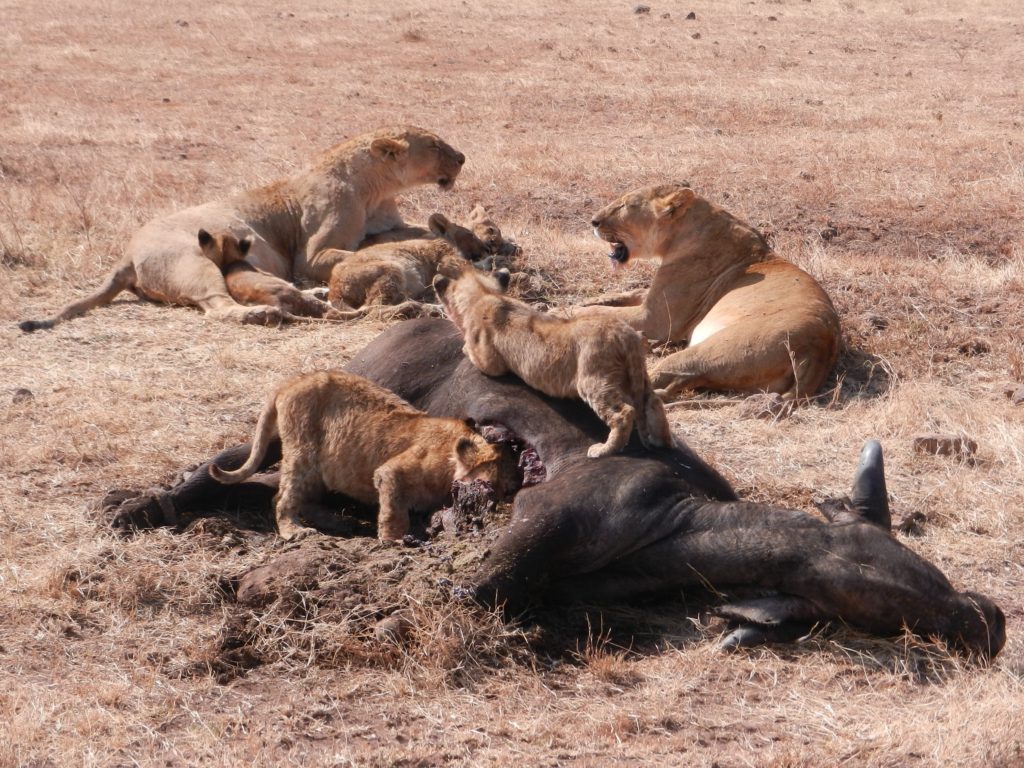Next week, my ten-year-old daughter returns to school to begin fifth grade in her last elementary level year. Doubtless, one of the first writing assignments of her new year will be the ubiquitous, dreaded, and dreadful “What did you do this summer?” This always seems a particularly sadistic form of pedagogy designed to (1) remind you that your blissful summer holiday is over, (2) transmogrify the very memory of respite into a chore, and, should you be truly unfortunate, (3) rub your nose in other people’s more exotic journeys and your own comparative mundanity.
Thankfully, we had a terrific holiday and nobody is going to grade my writing. So, in solidarity with my daughter, I’m writing today about what I did this summer – specifically my African journey.
Of course, that just so happens to be the title of Churchill’s travelogue on Britain’s possessions in East Africa, written while he was serving as Undersecretary of State for the Colonies under Lord Elgin.
In the summer of 1907 Churchill left England for five months, making his way after working stops in southern Europe to Africa for “a tour of the east African domains.” Churchill enjoyed a proper 19th Century bwana experience, traveling by special train provided by the Uganda Railway, receiving tribute from various chiefs, and shooting all manner of things. In early November, Churchill would kill a rhinoceros, the basis of the striking illustration on the front cover of the British first edition of his eventual book.
By now a seasoned and financially shrewd author, Churchill arranged to profit doubly from the trip, first by serializing articles and then by publishing a book based substantially upon them.
This summer I took a family trip with my wife and daughter to Tanzania. I did not shoot anything. I don’t have a book deal.
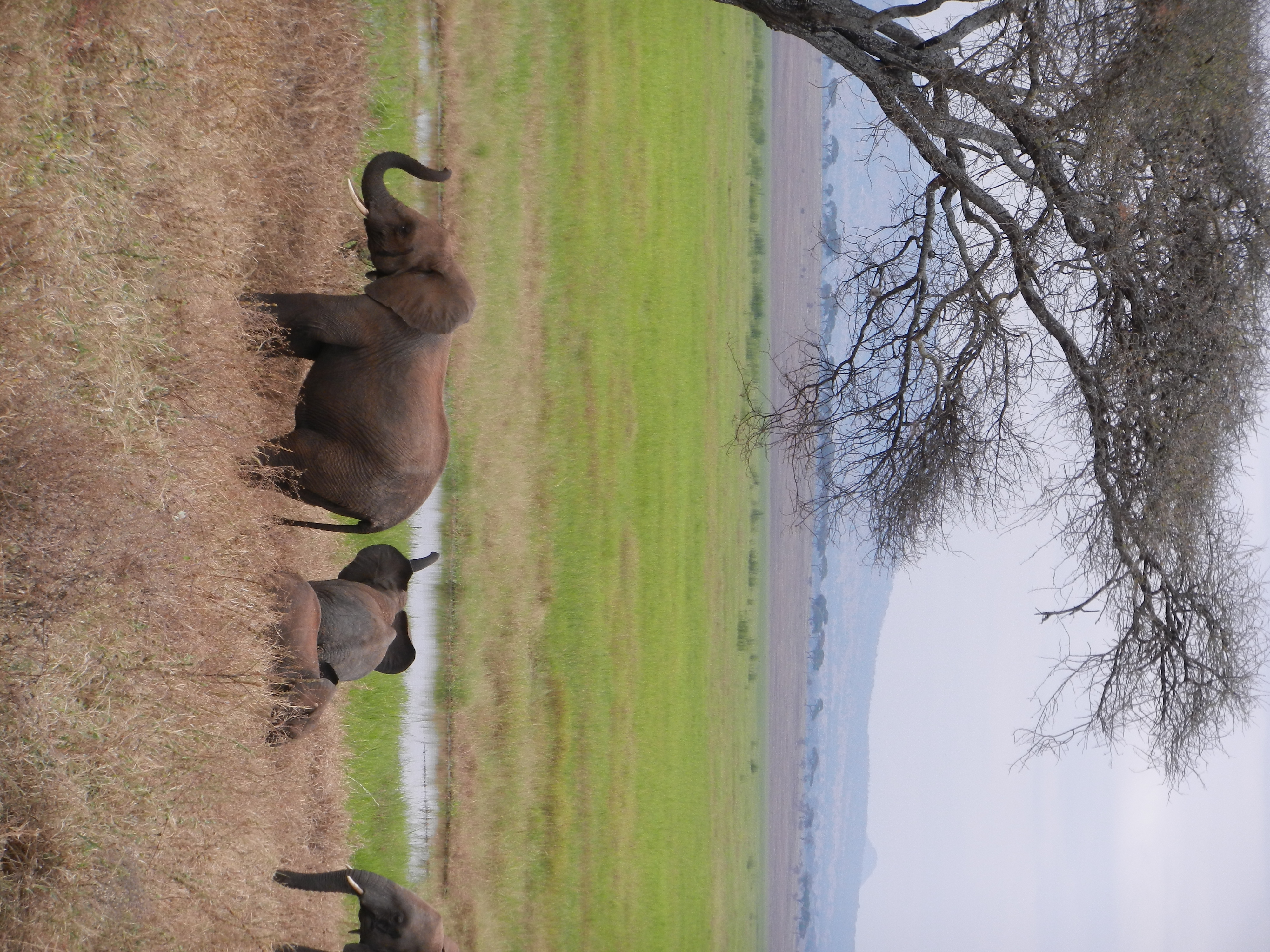
But I did take Churchill’s book with me. Years ago we acquired a horribly tatty, poorly rebound first edition as part of an auction lot. It was unsalable, but nonetheless I hung on to it, annoyed by the bits of desiccated leather it shed but unable to simply throw it away.
So I took it to Africa, beginning it while en route and finishing it while there.
Churchill’s book opens thus:
“The aspect of Mombasa as she rises from the sea and clothes herself with form and colour at the swift approach of the ship is alluring and even delicious. But to appreciate all these charms the traveller should come from the North. He should see the hot stones of Malta, baking and glistening on a steel-blue Mediterranean. He should visit the Island of Cypress before the autumn rains have revived the soil, when the Messaoria Plain is one broad wilderness of dust, when every tree – be it only a thorn-bush – is an heirloom, and every drop of water is a jewel…”
My first steps on African soil can best be described thus:
The aspect of Kilimanjaro Airport as one arrives from two long international flights is dark. Because it is late at night. Bats dart and twitch through the air as stiff and disoriented victims of international coach class lurch across the tarmac to the main structure for visa processing and baggage retrieval. Three lines and $100 each later, one wonders if there are specific genetic markers that imbue airport functionaries the world over with a particular taciturnity and inability to form salutary facial expressions.
Next time I’ll come by sea.
The good news is the Africa I visited was far different from Churchill’s, but still strikingly beautiful in flora, fauna, people, place, and time.
In East Africa, one cannot avoid the sensory weight of the fact that this is where humanity came from. Our point of origin as a species. And now, as the fastest growing continent, one filled with both magnificent wildlife and rampant poaching, remarkable resources and profligate corruption, vibrant culture and endemic political strife, Africa is the uncertain emblem of our fate, encapsulating both our beginning and our future. On Africa’s teetering scales rests all that we have been given, all that we might be, and all that we can squander.
In this figurative sense, Africa remains owned by the larger world. Just a little over a century ago, ownership was more literal. Churchill’s Africa was substantially regarded as a patrimony, a place to reflect the contests, commerce, contrivances, and conceits of expatriate ambition. This has not entirely ceased, of course. Nonetheless, for better or worse, the bit of Africa I saw was not waiting to be affected by me, but an Africa accelerating into making itself.
I held as many conversations with our many hosts as feasible. At one point, speaking with one of our cooks, I pointed out that America had been a colony as well. I spoke of the fact that our internal land allocations and borders had been shaped by arbitrary imperial fiat, that we had been obliged to fight for our independence and to struggle once it was achieved, and that we had even fought brutally among ourselves, our bloodiest war having been our fundamentally uncivil Civil War. Concluding my lengthy exposition, I posited that our great difference from Africa lay in time, not circumstance and perspective, our being an extra two centuries removed from our colonial roots. The cook smiled and nodded. Then he replied, with far more pith and deft acknowledgement than his guest, “I believe you are on president number 44. We are on number 5.”
In a Masai village earlier that day, the women had given me a chance at pounding corn. I had felt neither skilled nor appreciated for my clumsy efforts. At least the cook made me feel appreciated.
I spent my last night in Africa in a tented camp in the Serengeti. It is a semi-permanent camp, almost Victorian in the comparative luxury it affords in the middle of such a remote and unspoiled place. In the main tent of the camp, next to the full bar (really) was a small library with a selection of books about Africa. Right before we departed, I secretly left Winston’s book there on the shelf. I like to think he’d be pleased, both with the setting and with the proximity to the bar.
In Churchill’s 1908 Preface to My African Journey he says:
“So much has been written, so many facts are upon record about every country… that a judicious and persevering study of existing materials would no doubt enable a reader to fill himself with knowledge… without leaving his chair. But for the formation of opinion, for the stirring and enlivenment of thought, and for the discernment of colour and proportion, the gifts of travel… are priceless.”
In this respect – “for the formation of opinion, for the stirring and enlivenment of thought, and for the discernment of colour and proportion” – Africa remains unchanged.

